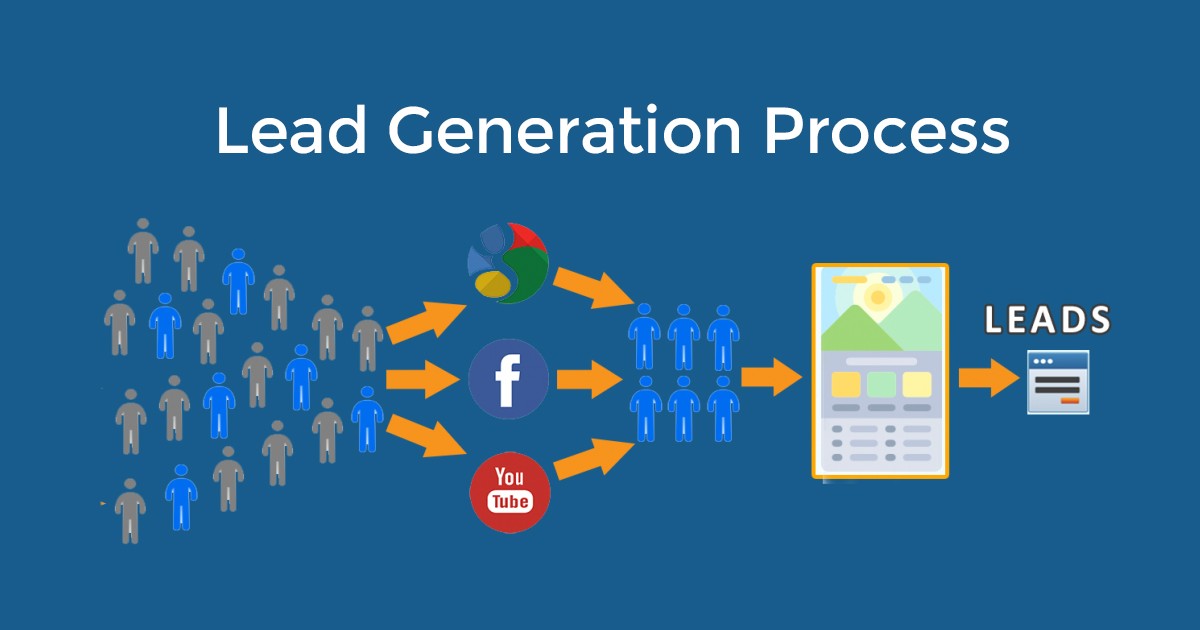In today’s competitive business landscape, generating high-quality leads is essential for growth and sustainability. One of the most effective strategies for achieving this is targeted marketing. Unlike traditional marketing methods that cast a wide net, targeted marketing focuses on specific segments of the audience that are most likely to convert. In this blog, we’ll explore why targeted marketing is crucial for lead generation and how businesses can implement it effectively.

1. Increased Relevance
Targeted marketing allows businesses to create tailored messages that resonate with specific audience segments. By understanding the unique needs, preferences, and pain points of your target audience, you can craft marketing campaigns that speak directly to them. This relevance leads to higher engagement rates, as potential customers feel that the message is personalized and aligned with their interests.
2. Higher Conversion Rates
When marketing efforts are directed at a well-defined audience, the likelihood of conversion increases significantly. Targeted campaigns attract individuals who are already interested in your products or services, resulting in a more qualified lead pool. According to research, targeted marketing can lead to conversion rates that are 10 times higher than those from broader campaigns. This means that investing in targeted strategies is often more cost-effective, yielding better returns on marketing spend.
3. Efficient Use of Resources
Targeted marketing optimizes resource allocation by focusing efforts on high-potential segments. Instead of spreading your budget thin across a wide audience, you can invest more in strategies that are proven to yield results. This efficiency not only saves money but also maximizes the impact of your marketing efforts, allowing for more strategic planning and execution.
4. Better Customer Insights
Implementing targeted marketing strategies requires businesses to gather and analyze data about their audience. This process provides valuable insights into customer behavior, preferences, and trends. By understanding your audience more deeply, you can refine your products, services, and marketing strategies to better meet their needs. Continuous analysis helps businesses stay ahead of market changes and adapt their strategies accordingly.
5. Enhanced Customer Relationships
Targeted marketing fosters stronger relationships with customers by demonstrating that you understand and value their specific needs. Personalized communications, such as targeted email campaigns and tailored content, help build trust and loyalty. When customers feel recognized and appreciated, they are more likely to become repeat buyers and brand advocates, further fueling lead generation through word-of-mouth referrals.
6. Improved Brand Reputation
Consistently delivering relevant and valuable content to your target audience enhances your brand’s reputation. When customers perceive your brand as knowledgeable and attuned to their needs, they are more likely to view it positively. This reputation not only helps attract new leads but also encourages existing customers to engage with your brand further, leading to higher retention rates.
7. Facilitated A/B Testing
Targeted marketing allows for more effective A/B testing of different strategies and campaigns. By segmenting your audience, you can test various messages, visuals, and offers to determine what resonates best with each group. This data-driven approach leads to continuous improvement, enabling you to refine your marketing tactics based on real-time feedback.
8. Leveraging Digital Marketing Tools
Digital marketing offers a plethora of tools and platforms that can aid in targeted marketing efforts. Utilizing social media advertising, pay-per-click campaigns, and marketing automation software allows businesses to reach their specific audience segments more effectively. These tools provide detailed targeting options, enabling you to hone in on demographics, interests, and behaviors that align with your ideal customer profile.
9. Fostering Innovation and Adaptation
Targeted marketing encourages businesses to innovate and adapt their offerings based on customer feedback and market trends. By closely monitoring the preferences of specific audience segments, businesses can identify gaps in the market and develop new products or services that meet those needs. This proactive approach fosters growth and enhances competitiveness.
Conclusion
In an era where consumers are inundated with information and choices, targeted marketing stands out as a powerful strategy for lead generation. By focusing on specific audience segments, businesses can create relevant messages, improve conversion rates, and build lasting customer relationships. As marketing technologies continue to evolve, the importance of targeted marketing will only increase. By embracing this approach, businesses can position themselves for sustainable growth and success in their lead generation efforts.


No responses yet